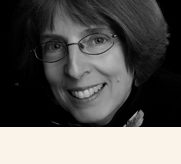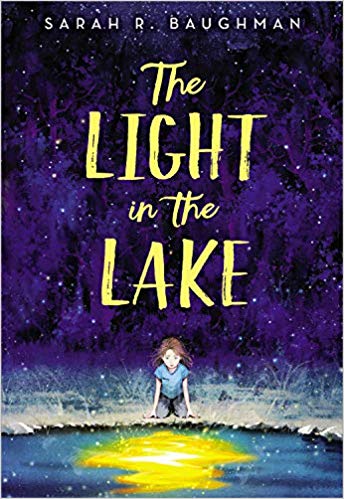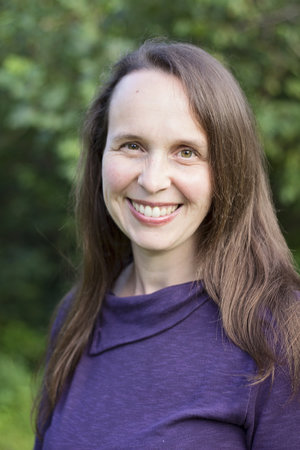Mama says people who think mountains don’t move are taking the short view of things. They’ve been moving, she says. All this time. Doesn’t matter that we can’t see it.
If we could somehow watch time go faster, I think, or if we’d live so long we’d felt the glaciers haul through here in the first place, we would see it. And then we’d know.
These lines are so rich, they drew me right in. And my question is: at what stage in your writing process did this opening come to you? Early on or late? Where were you when these lines emerged? How many times did you revise this opening until you felt you’d gotten it right?
SRB: I love that you asked this question, because these lines came to me right away, when I first thought of the story. I lived in Vermont at the time, and one day I was walking in the woods with my dog, looking at the mountains past my house and thinking about how geologically, they used to look very different. During the Ice Age, as glaciers advanced and retreated, they eroded Vermont’s mountains and gave them their beautiful, gently rounded shape.
I pondered how interesting it was that something as seemingly solid as a mountain could change, and very clearly heard this character (who would of course become Addie) say: Mama says people who think mountains don’t move are taking the short view of things. I’ve revised this book countless times, but along with most of the last chapter, these early lines haven’t changed at all!

SRB: I don’t think I realized how important this theme is to me until I began writing the book, but the truth is it’s been near and dear to my heart for most of my life. Even as a child, I sought a lot of comfort from nature and always sensed that there was more to it than I could ever grasp, an unknowable element that’s somehow both energizing and calming.
Although I’m not a scientist, I’m fascinated by scientific facts and processes. I tend to get particularly interested in the science around environments where I live; I loved learning about Vermont’s geology, and now that I’m back in my home state of Michigan, I’ve been re-investigating our freshwater dune ecosystems. But I also feel wildly inspired outdoors to the point where, yes, I’m pondering magical creatures under the waves and fairies in the knotholes of trees. In a way, the different ways Addie and her brother Amos look at nature represent two perspectives that exist side by side in me.
ABW: Yes, I see that in the characters, and the juxtaposition is great. And let’s talk a bit about Amos. Before the story begins, he has drowned. (Readers: This is not a spoiler! Right away we learn that Addie and other characters are grief-stricken.) Can you tell us a bit about your writing process related to this plot point? Did you ever consider starting with the scene where he drowns?
SRB: This was a hard plot point to write, but it was part of the story from the beginning. I didn’t consider starting with the drowning scene, though, because I always meant for the focus to be on Addie and how she moved forward, how she shaped her life in the wake of this tragedy.
ABW: Right. And you’ve written the story from Addie’s point of view. Along the way, did your process include drafting scenes from other characters’ viewpoints?
SRB: I was just talking with a friend who writes multiple-POV stories about how I would love to experiment with writing from different characters’ perspectives! I didn’t actually draft scenes from other characters’ viewpoints, but I definitely thought about how scenes might look through their eyes and how they’d react to certain events.
ABW: Let’s wrap up with a bit about your writing practice. Do you tend to write daily or catch-as-catch can? And where do you write?
SRB: When I’m actively drafting or revising, I tend to write every day or close to that, though sometimes if I do several intensive days in a row, I’ll then take a few days off to let ideas percolate before diving back in. I write wherever I can, though I’ve found I don’t do so well with distractions. (As much as I adore coffee, it turns out that coffee shops are not great places for me to work!)
ABW: Same here. In coffee shops, I find myself listening to the music, and it takes me out of the fictional world I’m creating.
SRB: I write best in the quiet dark of the very early morning, and will almost certainly get nothing done after 9 p.m. when my brain seems to turn to mush. But I’m also accustomed to squeezing writing in whenever. Up until this past year, I was a high school English teacher, and stole time where I could find it! Now, I’m an educational consultant with a more flexible schedule, so that’s been helpful for writing.



I can’t wait to read this!!
Once you do, you’ll be recommending it to others. Enjoy!
Sarah, your book sounds fabulous. I love the juxtaposition of science and magic. I love that you knew what happened at the end.
Great questions, Anne! Love this interview.
Thanks, Linda! I love asking about other writers’ processes and finding out how different theirs are from mine. The fact that Sarah knew her beginning and ending before writing the middle blew me away.